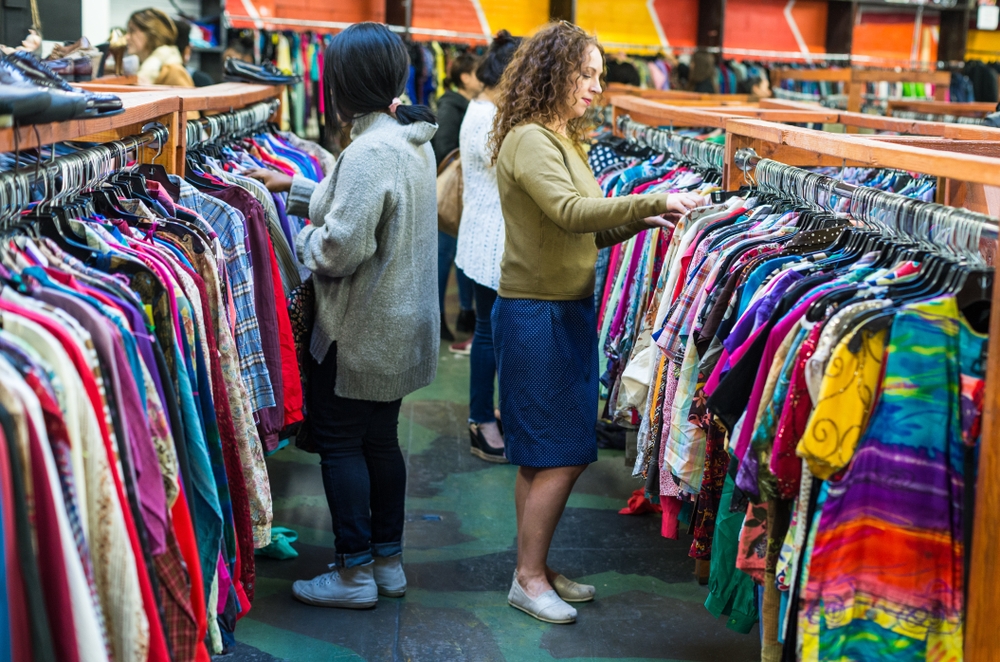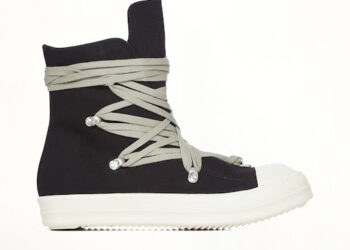The phrase ‘sustainable fashion’ has emerged lately to refer to fabrics, shoes, and accessories made and sold in a sustainable manner. It is interesting to note that the definition includes all processes in the supply chain- from sourcing raw materials, factory activities, packaging, and even marketing to the end consumer. Sustainable fashion encompasses both environmental impact minimization and positive socio-economic impact.
Criticisms of the Fashion Industry
The fashion industry has often come under fire for operating in an unsustainable manner. The perception has always been that the sustainability conversation is counter-intuitive to how the industry works.
The fast fashion industry emerged and grew exponentially in the last twenty years. This industry was initially praised for making trendy garments available to all categories of consumers. The fast fashion industry business model produces clothes in bulk quantities and sells at low prices. This model drives people to spend more on clothes frequently. The model also involves making trends last short periods- usually a few weeks or months.
The fast fashion industry is criticized for using underpaid labor in developing countries to keep costs low. There are also question marks regarding the working conditions of such labor. It is a common criticism for American and European brands that mainly outsource production to Asian factories. The perception has always been that these brands do not take enough responsibility, given the amount of power they hold financially.
Another criticism is that rapid production also has an impact on the supplier industries. The demand for cotton means that farmers use more water-intensive farming methods to speed up growth. They are also likely to use more chemicals in the process to be able to produce throughout the year, despite changing weather patterns.
How about the consumers? The industry does its marketing strategically so that people are conditioned to expect a new drop every few weeks or months. They end up buying clothes they wear once or twice and eventually need to dispose of them. This adds to the total waste that humans produce each year. If not properly disposed of, the environmental impact is enormous because of the chemical components used in their manufacturing.
Can the Fashion Industry Operate More Sustainably?
According to a McKinsey survey commissioned by Global Fashion Agenda, the fashion industry contributes 10% of global carbon emissions, and the figure is rising. This is quite shocking considering there are other industries or human activity one would expect to contribute more. These findings, coupled with many others in the past, have led to concerted efforts to try and make fashion more sustainable.
Circular Thinking
One of the ways brands are trying to limit their negative impact on the environment is through designing processes to use materials again and again in the industry. This is made possible through emerging technologies such as Green Machine by fashion brand H&M. This technology enables the separation and re-use of polyester and cotton clothing. It also dyes at a high enough speed to enable commercial recycling.
Another emerging trend is brands becoming involved with the resale of their products. There are now popular websites whose focus is the resale of second-hand designer fashion items. By supporting this trend, brands such as Gucci can be seen as being environmentally positive entities. For instance, Gucci has partnered with consignment company, RealReal to popularize the sale of Gucci’s second-hand products. In the partnership, the companies will make donations to an organization focused on biodiversity and reforestation.
Biomaterials
Researchers are continually finding environmentally friendly materials that can replace the more harmful materials currently used in making fabrics. Kintra Fibers, a materials science company, has patented the making of a 100% biodegradable material that could replace polyester. They are currently partnering with a loungewear brand known as Pangaia to scale the production of the fabrics.
Restorative Farming
In recognition of the negative impacts of commercial agriculture on soil quality, there are companies that have committed to practice regenerative agriculture. This is done by planting a diverse range of crops with no intention of harvesting but rather with a view to help put lost nutrients back into the soil while removing carbon from the atmosphere.
Doing this helps to offset the negative impact of commercial farming done by such companies elsewhere. Companies can produce carbon-negative products in this manner.
Digital Fashion
The coronavirus pandemic has accelerated the transition to digital fashion. To give an illustration, the fashion industry was stuck on old methods of prototyping garments. Now, due to logistical issues, there has been more use of digital prototypes, which have generated unplanned benefits such as reduced wastage and short lead times.
The development of digital fashion has led to entrepreneurs creating companies that do not necessarily have physical output. In 2019, a company called More Dash launched on the premise that there is a significant demand for fashion items for ‘digital content creation’. Therefore, the physical production of items for such customers is redundant. More Dash created studios where people could come, hire clothes, get a shoot done, and return the items. This satisfied their desire for content creation with trendy items while reducing the need to buy fast fashion.
The Sale of Digital Fashion
Another way to look at fashion is through digital creations that only exist in the online environment. These include skins in video games. The digital assets market is set to expand even further with the growing popularity of NFTs. These tokens help artists sell unique and identifiable originals of their work with a certificate of authentication. NFTs create value through scarcity and authenticity. This is what is motivating people to purchase them.
But how could NFTs help the sustainability cause of the fashion industry? As highlighted, there is a significant portion of customers who buy fashion accessories for the bragging rights of owning them, especially when only a limited number were produced. Fashion companies can pursue this angle and produce digital-only collectibles. This would also work in marketing campaigns where instead of sending physical goods to influencers, they receive digital copies, which they can still share on their social media pages. This would save a lot of fabric as well as packaging, thus reducing the environmental footprint of the fashion industry.
Among the pioneers in the digital fashion industry is Digitalax. In a whitepaper for their project, the company’s CEO explains their vision for the industry. They have built a sort of operating system upon which creators, entrepreneurs, and customers in the industry can interact. Digitalax believes that NFTs can enable fractional ownership of digital garments, such that each creator is rewarded for their contribution in creating a digital asset.
The Willingness of the Industry
There is a great willingness among participants in the fashion industry to leverage technology to move further towards sustainability. There is really no choice, however, because the amount of waste in the fast fashion industry is quite clear to see. Questions can also be raised on whether big fashion labels have done enough to ensure their supply chains are not riddled with questions of labor laws violations.
There is a need to educate consumers on the meaning of sustainability and what it means when a product has zero net carbon emissions. The only way to do so is through regular conversations around the issue. This will reduce the practice of greenwashing fashion products in the same way it happens to other consumer products. The general consensus, however, is that the fashion industry’s landscape will look vastly different from what it is now. Biomaterials, regenerative agriculture, and digital fashion will be mainstream buzzwords in the industry.






